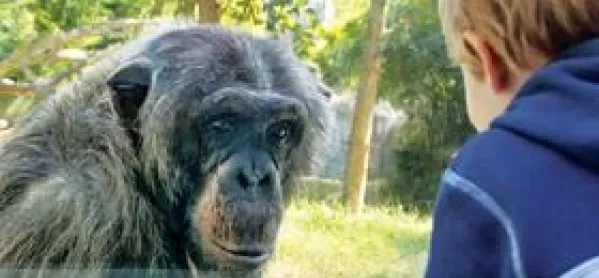Schools are being infiltrated by cults, say secularists

Pupils across Scotland are at risk from “notorious” cults threatening to “distort” their learning about the theory of evolution, according to campaigners calling for a ban on creationism in science classes.
The Scottish Secular Society said it launched its petition in response to growing fears among parents and teachers that obscure creationist sects were successfully infiltrating the nation’s schools.
Society chair Spencer Fildes said the danger was highlighted by a controversial case last year, in which senior teachers were removed from their posts at Kirktonholme Primary in East Kilbride after complaints that pupils had been sent home with materials from the Church of Christ creationist group, which described “the myth of evolution”. It later emerged that members of the controversial US organisation had been volunteering at the school for eight years.
South Lanarkshire Council said that a new headteacher had recently been appointed at Kirktonholme, and that neither the previous headteacher, Alexandra McKenzie, nor her deputy, Elizabeth Mockus, had been allowed to return to their posts after their suspension last year.
Ms McKenzie has since retired and Ms Mockus now works for South Lanarkshire Council’s education resources team.
A council spokesman said that no creationists now volunteered at any of its schools, and that it was “strengthening” relationships between school chaplains, parents and teachers to improve understanding of “the composition and role of the chaplaincy teams”.
All schools followed current curriculum guidelines on all subjects, he added.
The Scottish government has maintained that it is for teachers, not politicians, to dictate the curriculum. But hundreds of people from around the world have now signed the Scottish Secular Society’s petition, including three Nobel prize-winning scientists and, the society said, an increasing number of concerned teachers.
Giving evidence to the Scottish Parliament’s Public Petitions Committee this week, Mr Fildes said: “In view of what we have seen, it is no longer credible to ignore the fact that there are organisations attempting, with some success, to present creationism as valid.”
Kirktonholme Primary, where the text given to pupils “beggars belief”, was just one example of worrying links that “many schools” across the country had developed with creationists, he added.
“A concerned parent in the Highlands told us that she went to school a few years ago and found a `creation corner’,” Mr Fildes continued. “She thought it was an art display but it was a big wall chart on how the world was made in seven days. She said she seemed to remember asking where `evolution corner’ was, only to be met with a dirty look from staff.”
He added: “My son asked a question about nature in the woods and his teacher told him: `God makes all things’.”
Creationism in science lessons was “a distortion of learning in the classroom,” he said.
The society’s petition urges ministers to ban schools from presenting creationism and similar doctrines as “viable alternatives” to the established science of evolution, common descent and deep time. It does not oppose teaching creationism and related beliefs altogether, however, suggesting that the subject should instead be covered under religious and moral education (RME).
Committee member and independent MSP John Wilson recalled recent concerns that faith leaders in Birmingham schools had sought to influence teaching, and said he knew of a headteacher who had “imposed” their own beliefs to the exclusion of other religions. He urged ministers to give teachers a “clear steer” on creationism to avoid teaching “something that conflicts with current science”.
But deputy convener and SNP MSP Chic Brodie urged members to throw out the petition as the government had already stated that politicians should not dictate curriculum content.
Nonetheless, the majority voted to request “confirmation” from ministers that Scotland’s education system was “robust enough to ensure that our children develop a rounded, rational education, and that if there was any threat, the situation would be urgently reviewed”.
The EIS teaching union said it was “not convinced” that a ban was needed because it had “confidence” that teachers would not support beliefs that undermined current curricular guidance on science or religious education. It agreed, however, that creationism would be better covered in RME than in science.
A spokesman for the Scottish government said it was confident that the education system could provide a rounded, rational education without imposing the ban.
Keep reading for just £1 per month
You've reached your limit of free articles this month. Subscribe for £1 per month for three months and get:
- Unlimited access to all Tes magazine content
- Exclusive subscriber-only stories
- Award-winning email newsletters


